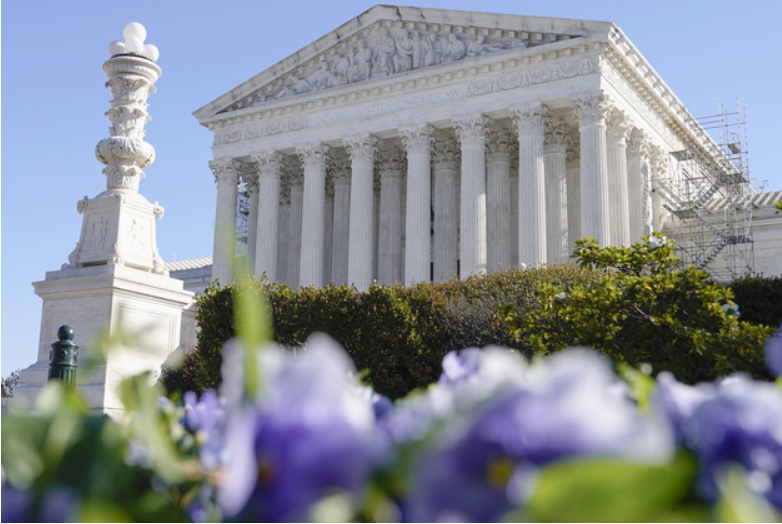(BBC News) The U.S. Supreme Court on Monday released its first ever set of ethics rules governing its nine justices.
The nine-page “code of conduct” comes as the most powerful legal body in the U.S. is under increasing scrutiny following recent news reports of gifts and holiday arrangements lavished on several of its jurists.
While federal judges on lower courts have been governed by an ethical code since 1973, this marks the first time the country’s highest court has set out its own rules.
The court had released a “statement on ethics principles and practices” earlier this year, but Monday’s release provides significantly more detail.
In a paragraph introducing the guidance, the justices said that they had long abided by unwritten ethical rules derived from a variety of sources, including the lower-court code.
They said the absence of explicit rules, however, led to the “misunderstanding” that justices viewed themselves as unrestricted by any ethical guidelines.
The code contains no enforcement mechanism. Justices will have to choose to abide by its “rules and principles”.
“It’s only a half-measure, at best,” says Steve Vladeck, a professor at the University of Texas School of Law, who has written extensively about the U.S. Supreme Court.
“Even the most rigorous ethics rules don’t mean much without some means of ensuring that they’re followed.”
He notes, however, that the new rules do show that the justices are aware that their ethics are a matter of significant public concern – and that they had to do something to respond to recent critiques.
The rules are divided into four main sections outlining how justices should behave, perform their duties, and conduct themselves in non-judicial and financial activities
Justices are advised to consider whether speaking at an outside event “would create an appearance of impropriety in the minds of reasonable members of the public.”
The guidance goes on to note that most academic, legal, religious, or cultural associations would not present such a problem, while events affiliated with political parties or campaigns would.
The court also set out circumstances under which justices should disqualify themselves from participation in a case. Those include when a justice has a bias or prejudices concerning a party to the case or has a financial or other interest that could be “affected substantially” by the outcome of the proceedings.
Earlier this year, the media organization ProPublica published an investigative report on the relationship between Justice Clarence Thomas and wealthy conservative activist Harlan Crow.
Thomas did not disclose annual expensive holidays and private jet transport that he received from the influential Texas Republican. Nor did he report that Crow had paid for the private schooling of a relative who lived with Thomas or purchased a house where Thomas’s mother lived.
ProPublica’s reporting, followed by revelations involving other justices – including liberal justice Sonia Sotomayor using her Supreme Court staff to push sales of her books at public events – prompted calls for Congress to pass legislation creating a binding set of ethical guidelines for the court.
Last week, Democrats on the Senate Judiciary Committee considered issuing subpoenas for Crow and another conservative judicial activist, Leonard Leo, for a list of all benefits they provided to Supreme Court justices and their relatives.
The court’s action on Monday is unlikely to quell the criticism directed at it, particularly from liberal groups that have condemned the recent conservative tilt of its rulings.
“This code of conduct is mere window dressing that does nothing to fix the court’s rampant ethics problems,” Devon Ombres, senior director for courts and legal policy at the Center for American Progress, said in a statement.
“It uses the word ‘should’ to address the justices’ conduct 51 times, but the words ‘shall’, ‘must’ or ‘may not’ don’t appear in the text of the code itself.”
In commentary accompanying its code, the court said that it would consider seeking further guidance on whether to expand or amend the rules on financial disclosure and recusal from cases.
Recent opinion surveys have found that public trust in the Supreme Court – which last year issued a decision that the right to abortion is not protected by the U.S. Constitution – is near an all-time low.


